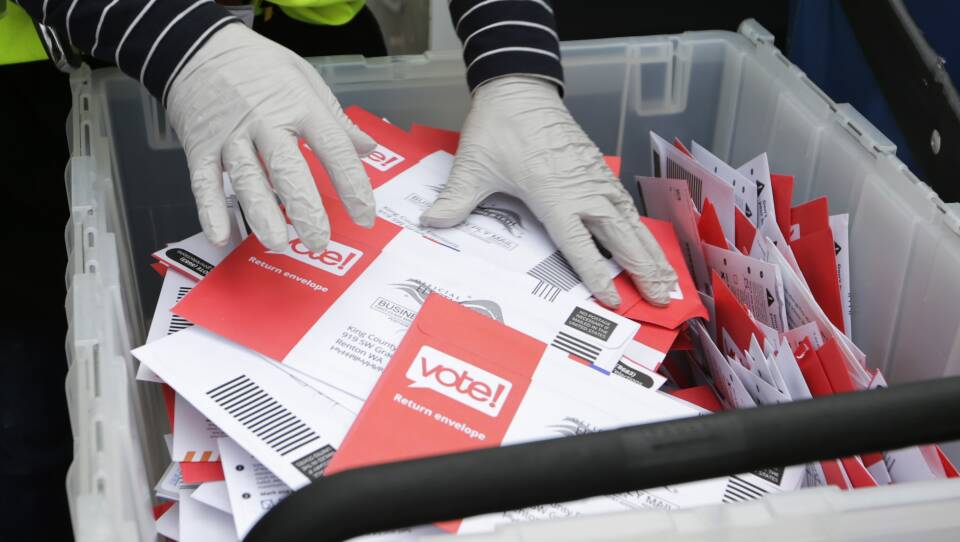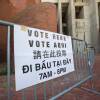Less than a month after Gov. Charlie Baker signed a sweeping elections-reform bill into law, the state's highest court is weighing whether the law in question violates the Massachusetts Constitution.
The VOTES Act — which was overwhelmingly backed by both chambers of the Democrat-dominated Massachusetts Legislature — makes permanent the expansions of voting by mail and early voting that were introduced as temporary measures during the COVID-19 pandemic. It also allows voter registration up to 10 days prior to an election, significantly reducing the previous cutoff of 20 days.
As soon as the law passed, Massachusetts GOP chair Jim Lyons announced that he was suing to overturn it and accused the Legislature of overstepping its authority. Lyons and other plaintiffs point to specific amendments in the Massachusetts Constitution which say the Legislature can pass laws aimed accommodating voters who “are absent from the city or town … are unable by reason of physical disability to cast their votes in person … or who hold religious beliefs in conflict with the act of voting on the day on which such an election is to be held.”
In a remote hearing Wednesday, Michael Walsh, an attorney for the plaintiffs, said that provision should be read as barring the Legislature from precisely the sort of sweeping expansions it passed earlier this year.
“Every word in the constitution must have meaning,” Walsh said. “When [the amendments] say that the Legislature will have the power to do ‘X,’ they are necessarily saying that there is no power to do anything that’s not ‘X.’”
Adam Hornstine, an assistant attorney general representing Secretary of the Commonwealth Bill Galvin, the state’s chief elections administrator, made the opposite argument.
“Under longstanding precedent from this court, particularly in the context of regulating elections, the Legislature retains broad power to act, absent any specific circumscription of that authority by the constitution,” Hornstine said.
That characterization brought an immediate rejoinder from Associate Justice Scott Kafker.
“That sentence about ‘specific’ [circumscription] doesn’t appear in any cases,” Kafker said. “That’s you, as far as I can tell.”
In response, Hornstine acknowledged that the language in question was his own, but also said it accurately reflects previous SJC rulings.
Kafker, who expedited the court’s consideration of the case in a June 29 ruling, was the most outspoken justice during Wednesday’s proceedings. He also questioned several claims made by the plaintiffs. At one point he noted that, according to their reasoning, the past eight years of elections could be deemed illegal because they involved early voting.
Because the secretary of state needs to start sending mail-in ballots to voters this month to meet the new law’s requirements, a ruling on the current challenge is expected soon.








